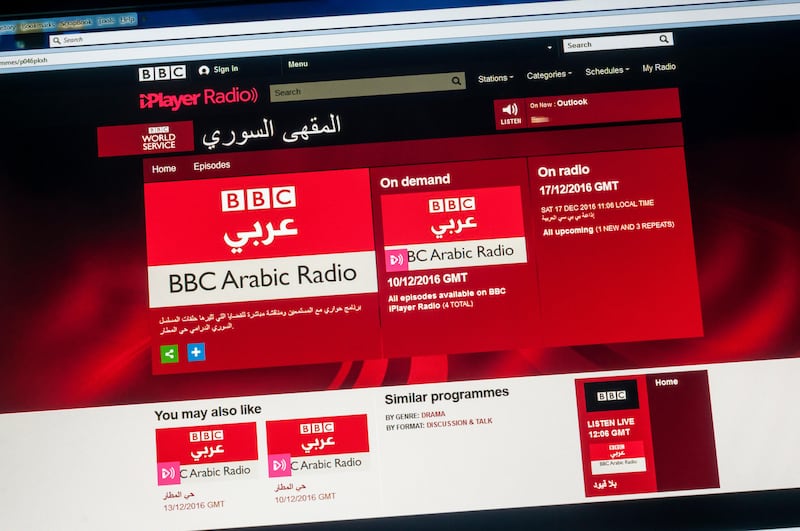Diplomats, teachers and British residents of the UAE have lamented the scaling back of BBC Arabic, saying it affects the UK’s soft power in the country.
Speaking at a panel discussion hosted by the Emirates Society on the role of British culture and education in the UAE, Michael Wilson, director of the British international school Cranleigh Abu Dhabi, described the decision to cut back on BBC Arabic as a “big mistake”.
The BBC World Service’s Arabic language radio station was established in 1938 but went off air in January this year as part of the broadcaster's cost-cutting plan.
Amanda Buckley, cultural affairs officer at the British embassy in the UAE, highlighted the enormous influence afforded by the World Service, which is broadcast in more than 40 languages.
She stressed the importance of keeping organisations such as the British Council and the BBC World Service “at arm's length” from the government.
“Their legitimacy and credibility depends on that independence,” she said.
The panellists' comments came after the first UK-UAE Strategic Dialogue this month, with Sheikh Abdullah bin Zayed, Minister of Foreign Affairs and International Co-operation, meeting Britain’s Foreign Secretary James Cleverly in London.
Though British institutions and businesses in the UAE are successful in promoting British soft power, they could do more to integrate themselves, the panellists said.
“There's a deep and rich history between the two countries dating back to the Trucial States. Understanding and being respectful of that is really important,” said David Sadler, provost at the University of Birmingham, Dubai.
“It doesn’t give us supremacy. It’s a multidimensional challenge.”
Mr Wilson expressed fear that British schools in the UAE were contributing to a decline of Arabic language and culture through the promotion of English, and this risks compromising perceptions of the UK in the country.
“We will be seen as encouraging a loss of heritage and culture,” he said. “I was born and brought up in East Africa, where this is exactly what happened.”
Adding to this, Jim White, a member of the audience and UAE resident, highlighted the need for British professionals to learn Arabic.
“We need to be employing people that are Arabists, who are ready to spend a large chunk of their career in the diplomatic service speaking the Arabic language, and are ready to understand the region’s history and values,” he said.
“When activating that deep historic relationship, it has to be bilingual.”
A BBC representative said: “BBC Arabic offers independent and impartial news to nearly 40 million people weekly worldwide.
“As more of our audience access news digitally, we want to reach them on the platforms they’ve chosen including with our expanded digital audio content offer.
“We are committed to serving trusted journalism to audiences in the Middle East and North Africa and beyond.”







